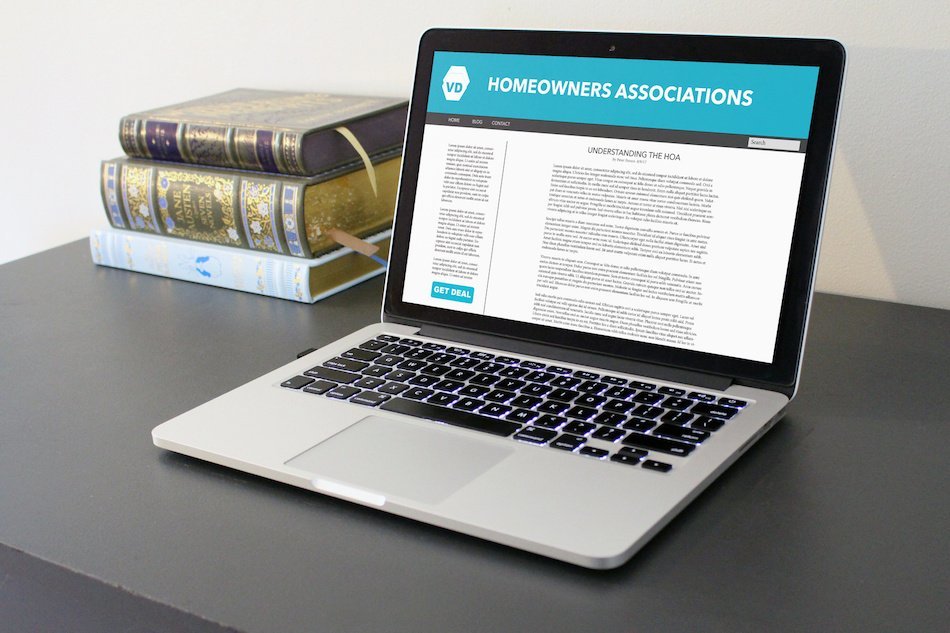What Is a Homeowners Association?
Posted by Gary Ashton on Thursday, April 11th, 2019 at 9:52am.
 Buying a home can be both rewarding and overwhelming by the amount of information that's out there. Once the ideal community is selected, buyers have even more to consider. Some communities use a homeowners association (HOA) to provide certain services and enforce rules. Each HOA can be quite different, so even people who have owned a home in an HOA should take care when considering another. Here's what buyers need to know before they buy a home with an HOA.
Buying a home can be both rewarding and overwhelming by the amount of information that's out there. Once the ideal community is selected, buyers have even more to consider. Some communities use a homeowners association (HOA) to provide certain services and enforce rules. Each HOA can be quite different, so even people who have owned a home in an HOA should take care when considering another. Here's what buyers need to know before they buy a home with an HOA.
What Benefits Do HOAs Bring to Homeowners?
The benefits of a homeowners association make it easier to maintain the home and the surrounding landscape. Homeowners will know that they have the services they need in place, and the space around their home is going to be well-kept. With everyone following the same set of rules, homeowners can expect that their property is not going to go down in value because of a neighbor that doesn't take care of their home. It is the homeowners association that will deal with a difficult member of the community, and that has the power to enforce rules set by the association. Homeowners can have a say in what goes on by running for a spot on the association's committee. HOAs give everyone a set of rules to follow, making for a more cohesive community setting.
What Do HOA Dues Cover?
The concept of an HOA may not be too difficult to understand, especially for people who are familiar with renting in an apartment complex. HOA fees range from $100-$400, and generally cover the cost of upkeep and upgrades for the community. They may also provide for certain services that the community controls, such as a swimming pool or clubhouse.
People should keep in mind that HOA dues could vary between communities depending on the condition and age of the property, as well as local standards. Since these fees are non-negotiable and set at the time of the home purchase, they will usually factor into a buyer's maximum mortgage payment. People should confirm the HOA fees before making an offer, since this cost affects their potential buying power.
Can HOA Fees Go Up?
Although the fee is identified before the buyer even puts in an offer on the home, the monthly dues could change at any time. For example, the current fees might cover routine maintenance of exterior structures of a condominium complex, such as cleaning and minor repairs for the roof. However, if the community decides to replace the roofing material on all buildings, the additional cost could create a debt calling for a change in the fees. HOAs often ask for homeowners' input and a vote before making such improvements. This instance is more likely to happen as the community ages and needs upgrades to maintain property value.
How Are HOA Rules Enforced?
The goal of an HOA to ensure compliance of the rules by homeowners. The only way this can happen is if homeowners know what the rules are. Before people buy a home, they need to invest the time to read the HOA guidelines very carefully. They can ask their agents for assistance on terms they do not understand. Buyers should ask for confirmation that the target property is currently in compliance with the rules, so that they do not inherit a series of rule violations once they take ownership. Violations typically come with a formal warning, and fees if homeowners do not follow the rules. Since the rules are set by a committee of homeowners in the community, they may change periodically to accommodate issues that come up for residents over time.
How Can Homeowners Influence an HOA?
Once people buy a Gallatin home in a community with an HOA, they are committing to following the rules, whatever they are. Over time, they may decide that they would like to have greater influence over community guidelines and direction. There are a few ways they can achieve this goal, including:
- running for a spot on the HOA committee
- voting in periodic elections
- weighing in on proposed changes to by-laws
Taking an involved interest in the way the HOA is run is the best way for homeowners to ensure that their voices are heard.
Buying a home in a homeowners association involves participation in a community with a variety of services and standards. When home buyers understand what they must do in the community, they will be better prepared to make a decision about whether to buy a home with an HOA, and the kind of HOA that is ideal for them.

Gary Ashton
The Ashton Real Estate Group of RE/MAX Advantage
The #1 RE/MAX team in the World!
